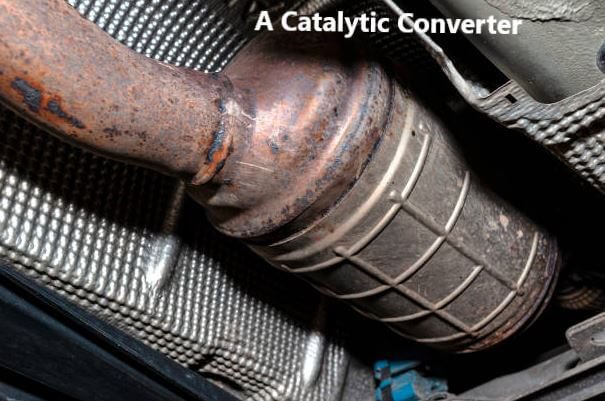Every morning, you get into your car and turn the key. But sometimes it takes a few tries to start up, or maybe you can’t even get it to turn over at all. What could be the problem? One possibility is that your catalytic converter has gone bad. A catalytic converter helps to regulate the air-fuel mixture inside the engine by converting harmful emissions into less toxic substances before they are released into the atmosphere. What happens if this system isn’t functioning optimally, or the catalytic converter gets clogged? Does driving with a bad catalytic converter harm your engine? Read on to find a detailed answer.
Driving with a catalytic converter that is partially bad is not risky for your engine provided some parts of the catalytic converter is plugged in. However, the car will not perform optimally because of a problem with the catalytic converter.
On the contrary, driving with a totally damaged catalytic converter will ruin your engine. The catalytic converter is meant to convert harmful compounds in the exhaust of the car into harmless compounds that will not ruin your car or the environment. Therefore, driving with a bad catalytic converter is dangerous not only to your car but also to the environment. It is advisable to get a new catalytic converter when the one you have fails.
Check out: Can a Catalytic Converter Unclog Itself?
Is It Safe to Drive With a Bad Catalytic Converter?
Driving with a bad catalytic converter is not safe both for your car and the environment. A bad catalytic converter increases the emission of carbon monoxide, hydrocarbons and nitrogen oxides. These exhaust gases will ruin your engine and even cause cancer or respiratory illnesses if inhaled by human beings.
Carbon monoxide, hydrocarbons, and nitrogen oxides from a damaged catalytic converter will ruin your car engine if exposed to them for a long time.
A faulty catalytic converter causes tailpipe smoke even if the smoke is not visible from the exhaust pipe. In addition to this problem, such a catalytic converter can get very hot (red hot). In this case, your car is in danger as this can burn the fuel lines. Therefore, the early you check and repair a bad catalytic converter in your car the better.
Find out: Will a Clogged Catalytic Converter Cause Loss of Power?
What Happens if a Faulty Catalytic Converter Is Not Replaced?

First, your car’s fuel efficiency will decrease. Catalytic converters are meant to neutralize hazardous compounds from the car’s exhaust system. In doing so, they increase gas mileage and performance which translates to a positive fuel economy. If you don’t replace a faulty catalytic converter, you will have to spend a lot on fuel as this process will not be taking place as it should.
Secondly, the converter not only emits harmful gases but also causes severe damage to engine parts like pistons and valves. The rust formed on these surfaces can cause permanent damages in the long run if left untreated for a longer time period. Your car is fitted with a downstream oxygen sensor that will always alert you on the condition of the catalytic converter. The oxygen sensor is meant to measure the efficacy of the catalytic converter.
Third, you will experience a reduced acceleration. This is due to the pressure that will be exerted on your car engine. The reduced power output of the engine can cause you to face problems while driving uphill or during sudden acceleration requirements. The car will experience a reduced power output as a result of the incomplete combustion of gases in the exhaust.
Fourth, there are chances for failure in fuel mileage and an increase in emissions under low cruising speed conditions. If all these signs do not indicate a bad catalytic converter, then you have a faulty oxygen sensor. The oxygen sensor will have t be checked with immediate effect as it is possible to cause overheating in the car.
Based on these effects, driving with a bad catalytic converter is causing more damage to your car.
How Long Can You Drive With a Bad Catalytic Converter?
You can drive as long as possible with a bad catalytic converter depending on your driving habits and the severity of the problem. However, you should keep in mind that the longer you drive, the worser the problem becomes. Therefore, you should be ready to cater fr more expenses when it comes to repairing the catalytic converter.
Catalytic converters are meant to operate optimally in the right conditions. Thus, the longer you drive on a bad catalytic converter, the more it gets clogged.
If you drive too fast, the fiber between the catalytic converter and the inner part may get burned. If this happens, you will not pass the automobile emissions test and chances are you will be fined for driving a faulty car. You don’t need to fail these tests as you will incur hefty penalties. Repairing the catalytic converter will save you from unnecessary struggles.
Checking for a Clogged Catalytic Converter
Catalytic converters can get clogged due to different reasons. Some of the causes include a malfunctioning oxygen sensor, bad spark plugs, improper fuel mixture, or incorrect timing. You need to check to confirm whether your catalytic converter is clogged to unclog it.
A vacuum test is the most common approach used to test for a clogged catalytic converter. You will need to attach a vacuum gauge that measures the high-pressure difference between the engine manifold and the air intake. The reading should be about 15 inches of mercury if your catalytic converter is not clogged. If it is, you might see lower readings indicating reduced gas flow due to clogging in the exhaust system.
Gauging for carbon monoxide is another way to test for a clogged catalytic converter. If the readout shows significantly elevated carbon monoxide levels, this might be an indication of a defective catalytic converter.
Another reliable method for testing for a bad cat involves checking your computer’s feedback loop data from the oxygen sensor and looking at exhaust gas temperature or EGT. If you are getting higher than normal EGTs, this might be an indication of a bad catalytic converter
Oil or Antifreeze in the Exhaust System
This is a symptom that can lead you to believe your catalytic converter is bad. In this case, the oil or antifreeze will be found in a buildup on top of the exhaust manifold. The biggest problem with these fluids being present is that they prevent heat from going through to burn off any harmful contaminants within it before it hits the engine.
How to Unclog a Catalytic Converter
There are various products and techniques used to unclog a clogged catalytic converter.
One way to unclog a catalytic converter involves using a catalytic converter cleaner. This type of cleaner is designed to dissolve the carbon that has built up inside your engine and then flow out or purge through your exhaust system. The process flushes away carbon from each component in the system, including the catalyst itself.
Be very careful to follow the label instructions and never mix engine flushes. It is a good idea to check with your mechanic before starting this process because you might need other equipment or chemicals to finish it properly. There are many catalytic converter cleaners for different engines. Thus, you should check to get a catalytic converter cleaner that is compatible with your car model.
Another way that people have been using involves welding a wire from one end of the cat converter’s body to another, thereby creating an electrical short between them. The short circuit created will then heat up the metal at a rapid rate. As soon as it reaches a high enough temperature, the unit will pop and fizzle out. Therefore, you can drive away from your location with ease without worrying about any of these pesky problems again.
Final Words
Driving with a bad catalytic converter can ruin your engine. A catalytic converter should be repaired as soon as it begins to malfunction or function poorly.
Buy a new catalytic converter if the one in your car burns up. Having a properly functioning catalytic converter will save you from a lot of challenges especially when it comes to accelerating your car. You can opt for a catalytic converter repair in case of mild issues with your current catalytic converter. It is recommended to avoid a clogged up catalytic converter in your car as this can greatly impair the performance of the car engine.







